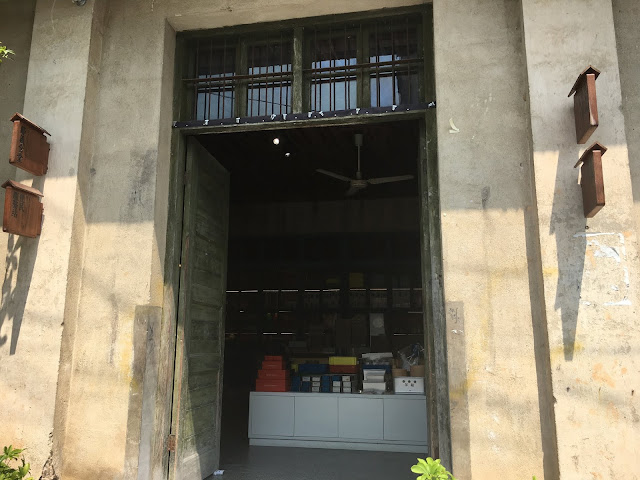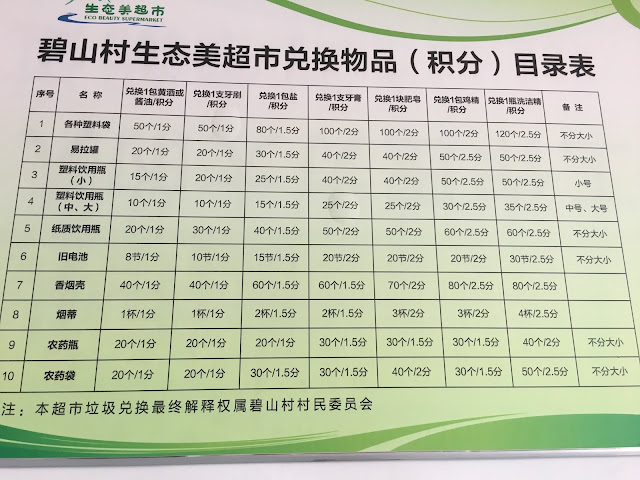Zhang Mengqi, body exercise, photo: Wang Hai'an
Folk Memory Project 2019, Event no. 27
Summer Workshop for Rough Editing of Filmmakers First Film
Caochangdi Workstation, Beijing, 1-4 August, 2019
Participants: Zhang Mengqi, Zhang Ping, Shao Yuzhen, Liu Xiaolei, A Rong, Hu Tao, Tu Haiyan, Gao Ang, Wei Xuan, Hao Yongbo, Liu Yanzhuang (Dudu), Wang Hai'an, Shu Qiao, Mai Corlin, Zhang Liyuan, Wu Wenguang.
The beginning of August, I participated in a documentary filmmaking and body workshop with Caochangdi (CCD) Workstation at their space in Qinjiatun Village. CCD Workstation is no longer located in Caochangdi, but in Qinjiatun Village, one hour drive north of Beijing, in the studio of Wu Wenguang and Zhang Mengqi. There are several other filmmakers/writers affiliated with CCD Workstation also living and working in Qinjiatun Village. Furthermore, they attract many people that come by and visit and work with CCD.
CCD Workstation can be understood as a loosely organized platform from where people interested in documentary filmmaking discuss, share experiences, help each other and try to reach another documentary film language through body exercises and deliberation. Most of the discussions take place on a shared email-list or during workshops, like the one I participated in this August. Generous discussion notes from the workshops are published on Facebook and on CCD's public Weixin account, making more people able to partake in the discussion of the development of the new documentary films, explorations of memory and the body and their engagement in rural China.
Many of the young filmmakers, including Zhang Mengqi, became part of CCD Workstation as part of the Folk Memory Documentary Project initiated in 2010. Each of the filmmakers would return to their own village or a village their family is close to and stay there for a prolonged period of time to film. The project is characterised most clearly by its rural commitments as well as its socially engaged side-projects. Since the filmmakers spent a lot of time in their respective villages, they experience the deficits and problems of rural China and tried to solve what little they could solve by setting up various projects (See my short article on CCD and their projects here). Furthermore, elaborate notes, stories and thoughts from their stays in the villages are published online as well. For the new batch of filmmakers participating with draft films in this workshop, their works (for now) revolves around personal and painful memories, being outcasts of society, land battles, education of poor children and so forth. The new filmmakers seem to have their own independent struggles to explore.
Links to workshop notes from CCD Workstation's Weixin account in Chinese:
Day 1
Day 2
Day 3
Day 4
Links to workshop notes from CCD Workstation's Weixin account in Chinese:
Day 1
Day 2
Day 3
Day 4
Workshop Notes
From left: Hu Tao, Mai Corlin, Wu Wenguang, Gao Ang and Wei Xuan. Photo: Wang Hai'an
The program began 9 am every morning with yoga followed by a body workshop consisting of varying exercises led by Zhang Mengqi. The exercises pushed the participants to transgress their own praxis. The workshop ended with each of the participants performing a self-chosen memory with their body.
Gao Ang (left) and Hu Tao (right), memory performance exercise. Wang Hai'an on the floor in the front.
Zhang Mengqi, memory performance exercise
Afternoon break at Zhang Ping and Hu Tao's house. From left: Zhang Ping, Gao Ang, my daughter and me.
Dinner at Zhang Ping and Hu Tao's house.
After dinner walk, each night between 7 and 8 pm, led by Wu Wenguang
Gao Ang and Hu Tao getting ready for the screening of Gao Ang's observational-style documentary film on land disputes in rural China. No title yet.
From 8 pm each night, we watched draft cuts of the young filmmakers documentary films and discussed the films in plenum afterwards. The sessions often lasted until 1-2 am in the night. The critique was direct, with everybody giving their views and suggestions for further development of the piece. The discussions were aimed at making the filmmakers more aware of their choices, pushing them to reach new grounds.
"狂人日记" (Mad Man's Diary). Working title of Wei Xuan's film. The title is inspired by the Lu Xun short story of the same name.
Tuan Yan, the main character of Wei Xuan's film and an outcast of the village Wei Xuan grew up in.
Getting ready for the screening of the second rendition of Tu Haiyan's "丢失了记忆, 丢失了自己" (To Loose Your Memory is to Loose Yourself).
Still from Tu Haiyan's "To Loose Your Memory is to Loose Yourself." The film tells the story of Tu Haiyan's harsh childhood in various villages and towns in rural China. Besides one or two family photographs from Haiyan's early life, the film shows no actual footage from Haiyan's childhood. Most of the visual material is composed of Haiyan's self-portraits filmed with a handheld camera or shots from trains or from what must be Haiyan's atelier.
Gao Ang during the discussion of her observational documentary film on land disputes in rural China. Photo: Wang Hai'an
Hao Yongbo, working title: "告别19岁" (Saying Goodbye to 19). Unfortunately, I missed Hao Yongbo's film. I had brought my seven months old daughter along, which created some limitations at times:-). Photo: Zhang Mengqi
Liu Yanzhuang (Dudu) getting ready for the screening of her film, working title "Namaste." The film was composed of footage from Dudu's work as a volunteer in a school for poor Nepalese children in Nepal along with a significant sound track. Photo: Zhang Mengqi
Late night discussions on the terrace. Photo: Wu Wenguang
On day three, I gave an improvised talk on socially engaged art (社会参与式艺术), focusing on projects in rural China. Photo: Zhang Mengqi
Participants of the 2019 Folk Memory Project Summer Workshop for Filmmakers, Event no. 27.
For more on Wu Wenguang, Zhang Mengqi and Caochangdi Workstation, see my short piece "Unearthing the Past: From Independent Filmmaking to Social Change" (2013).


















































